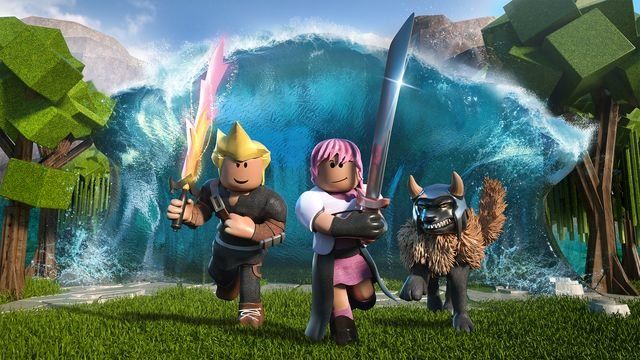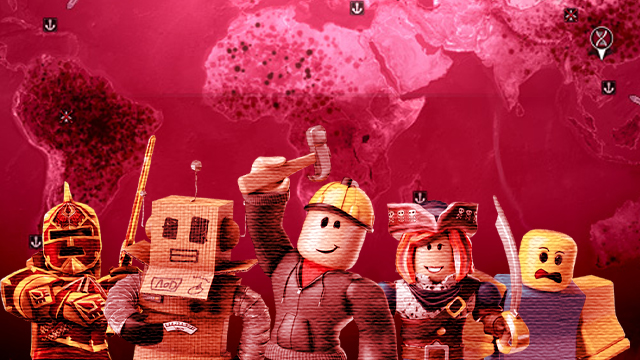Regardless of your country’s laws and rules regarding the global pandemic, common sense dictates that staying in and keeping away from people will help prevent the spread of a virus. Even if your respective government is encouraging you to go outdoors and lick every surface you come into contact with, the best way to not catch and spread a fast-moving virus is to limit the number of people you come into contact with. With this in mind, video games should arguably be considered an excellent source of entertainment and socialization during a difficult time period. However, some are concerned that increased screen time is creating widespread video game addiction, treating games as a threat as kids are trying to deal with this catastrophic world event.
The New York Times published a front-page article this week examining children’s increased screen time amidst the pandemic. As these things usually go, the article is predictably alarmist, playing on the in-game rewards and achievements that are dished out in the likes of Fortnite to lean into the addiction angle. It involves experts discussing how society has apparently offered up its children to video game creators — “This has been a gift to them — we’ve given them a captive audience: our children,” says the director of a child health organization — and parents explaining how they’re struggling to reduce their kids’ screen time.
‘Video game addiction’ wouldn’t be so scary if parents listened
Now, no parent wants some childless idiot (me) explaining to them how to look after their kids. I can appreciate the difficulties of trying to consistently be a good parent making the right decisions. I’ve watched my mom’s face drop after I recounted a childhood incident to her that she barely remembered yet I’d carried with me until adulthood. But as an ex-child who spent a lot of time playing video games growing up, I believe that what’s missing from these fearful articles is an authentic representation of video games, and how parents can — and should — get involved with them.
Video games are often unfavorably compared to sports. We’re told that it’s alarming when a kid spends too much time playing games indoors, while it’s a good thing when they go out and play games outdoors. Sports let kids get their exercise, build teamwork skills, and help them to socialize while playing video games is presented as a lonely activity with no long-term benefits. However, this representation is borne out of ignorance and an unwillingness to reflect on why children enjoy video games in the first place. It also discourages parents from actively engaging in their child’s hobby, by positioning games as a threat to their development rather than something that can actively contribute to it.
A PS2 and a naked dad

When I was a kid, my highly competitive dad spent an exorbitant amount of time trying to beat me at every game we bought. It started with him taking a day off work to complete Super Mario Bros. 2 so he could brag about it when I returned from school, and continued with him learning combos in the 1997 fighting game Dynasty Warriors so he could beat me at it when I stayed at his place.
One Saturday morning, I was woken up by rustling at the foot of my bed, only to find him sitting there completely naked playing Pro Evolution Soccer 3. I’m not sure why he considered clothes to be optional while doing this, but after realizing I was conscious, he quickly put the second PS2 controller in my hand and challenged me to a game. Awkward nudity aside, this was emblematic of his genuine interest in my hobby, and his interest in it helped me feel validated and strengthened my relationship not only with the things I enjoyed but with him, too. He passed away a couple of years later, and some of my best memories with him were simply spent playing.
Contrastingly, the New York Times article begins by recounting an argument between a dad and his son, in which the dad’s concern over his son’s gaming habits leads him to believe he’s “failed” the 14-year-old as a father. “These are the tools of their lives,” the dad says. “Everything they will do, they will do through one of these electronic devices, socialization included.”
I’m not going to judge the struggling family weirdly placed at the center of the article, but I want to compare this feeling of hopelessness surrounding kids and their games with a viral video posted last year of speedrunner Simply. Now, speedrunning a video game is something that competitors dedicate a huge amount of time to. In this instance, Simply had been trying for eight years to beat the world record for completing Super Mario 64. This is something that he would have had to have overlooked more traditional pursuits in order to achieve, yet when he did reach his goal, his ecstatic parents celebrated alongside him.
this the most wholesome shit i've ever seen@simplyn64 just broke the super mario 64 world record then this happened pic.twitter.com/v35u8AnaeY
— ludwig (@LudwigAhgren) May 30, 2020
A couple of things about this video stand out to me. First, there’s the obvious admiration the parents have for their son’s achievement. This isn’t a “we’ll put this awful finger painting on our refrigerator” level of pride, either — they clearly understand the hard work that has gone into what Simply achieved. Next, it’s the understanding the parents have of how meaningful this accomplishment is for their son. Not only do they immediately know what he’s achieved without him having to say much of anything, but his dad even knows the number of seconds he must have beaten the previous world record by.
The video of Simply and his parents went viral because it’s so unusual. Footage of parents standing on the sidelines cheering their kids on for doing well at sports or music or some other commonly accepted activity is a dime a dozen, but for being the world’s greatest at a video game? Despite that being an incredibly unique achievement? It’s unexpected, and to see a mom and a dad treat it with the same level of respect they’d reserve for a son who scored a good goal or played piano well is heartening.
Games have changed

Video games have changed since the days when my dad and I would play Track & Field. Now, kids can hop into games with their friends and effectively disappear from the rest of their family, hidden in their bedrooms playing Roblox without anyone truly knowing what they’re doing. But I doubt either of Simply’s parents have ambitions to become speedrunners themselves, yet they’re able to acknowledge their son’s accomplishment as a result of having learned why it’s so important to him. It’s his hobby, not theirs, and because he enjoys it they’ve learned about it and understand it.
Even if parents don’t want to start up their own Minecraft server, it’s better to be knowledgeable about a child’s hobby than feel so out of touch with it that they’re scared by it. When my dad was actively engaged with my hobby, it made me feel acknowledged, and not imbued with the sense of shame I imagine a kid would be if his Fortnite habits made their way into an NYT article. And hey, I eventually ended up with a good career centered around video games, partially thanks to the lack of condemnation I experienced for doing things I enjoyed that seemingly had no real-world advantages.
We’re stuck indoors during a pandemic, so while this means that kids have plenty more time to play their games, it also means parents have a lot more time to understand these games. If you’re a parent worried that your child is spending too much time staring at a screen, then ask them what’s on that screen. Get them to explain why they like it, see how you can get involved, and learn why this means so much to them. It’s a difficult enough time as it is without turning your child’s hobby into a threat.







